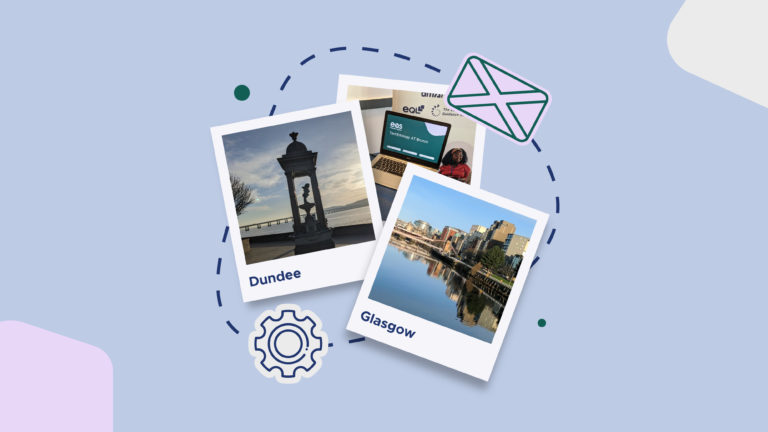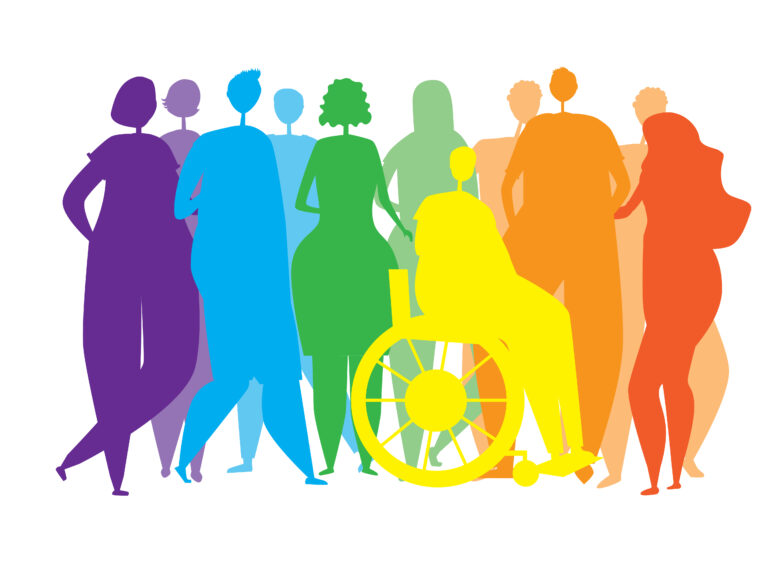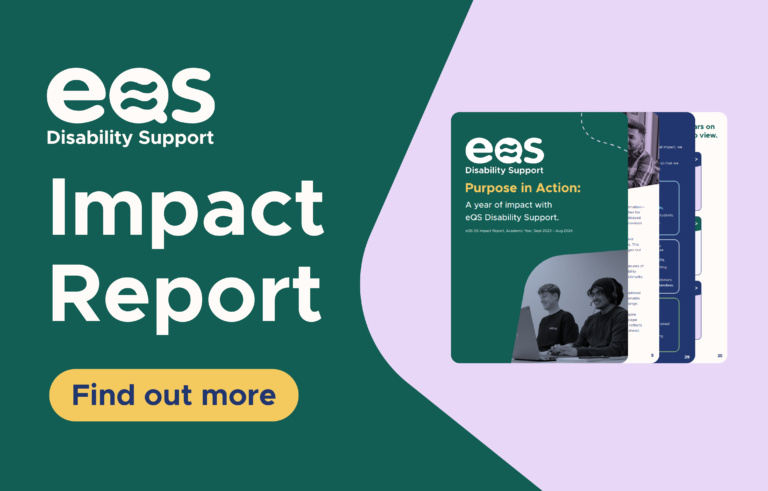
Swapping Webinars for Winter Sun: A Scottish Adventure
It’s great to get in front of ‘real’ people at an in-person event and have discussions that may not be as easy to have online during say a webinar of over 100 attendees.

It is likely that every week and month of the year has at least one attributable cause for awareness, but we also need to start moving these conversations forward with actions.
Neurodiversity is a term that has been discussed in the business community for many years but there are still inequalities in terms of employment rates and even inclusivity support for those who do get roles.
Statistics show people with disabilities are less likely to be employed in senior roles, such as managers, directors or senior officials, or be employed in professional occupations and that in the UK, just 21.7 per cent of people with autism spectrum condition (ASC) are in employment at all*.
I recently took a poll on LinkedIn asking people to pick just one thing that needed addressing most in supporting neurodiversity in the workplace.

I also invited comments to welcome further areas for improvement or enable people to highlight that all were of equal measure. Results showed most people voted for the need for awareness training.
At eQS, we recently undertook ASC awareness training. One of our consultants, who is autistic, created a workshop for all staff, which was delivered virtually.
It was incredibly informative and used personal stories to bring issues to life. However, this wasn’t the end of the journey. It got me reflecting on what action we could take as a company to make positive changes.
As a business leader operating in the disability sector, and a father of two children with hidden disabilities, I’m aware labels are not always helpful.
In terms of growing our understanding, people need the tools to respond accordingly, not just the awareness that these different labels exist.
For instance, most people would consider themselves familiar with neurodiverse labels such as dyslexia or ASC, but not everyone would know how to support these neurodiversities in a workplace in terms of recruitment, environment or communication styles.

This is where, (if you are neurotypical like me) we need to reframe our understanding of neurodiversity – and not jump to the wrong conclusions.
Neurodiverse conditions are often characterised by individuals having differences in social interaction and reading social cues, which neurotypical people tend to recognise more easily.
Rather than mistakenly jumping to the conclusion that this person is being rude, careless or forgetful, our first consideration should be, ‘is this person neurodiverse?’ and then consider reframing how we respond.
Being unbiased and unaffected by social norms and fears that can often inhibit neurotypical people means neurodivergent people can often be fantastic innovators who are logical and methodical in their approach to problem solving.
After all, we are all unique and have special qualities to bring to the business table, it’s just that some people are more adept at meeting social norms.
By recognising and celebrating a strong and diverse team, we can really value the fact that we all look at the world in a different way.
In the summer of 2020, eQS set up a ‘back into work’ scheme offering individuals who had been out of work due to mental health difficulties or redundancy due to the pandemic the opportunity to gain experience and skills to add to their CV.
We currently have two individuals in placement and their stories are below (their names have been changed for privacy).
Carl has ARFID, which is linked to autism. For the past few years, his confidence had decreased significantly, and he struggles with social situations.
He has previously been employed and worked in an office environment but the thought of going somewhere new was too much for his anxiety.

We thought our office environment would be ideal for him to adjust. He started as restrictions lifted from the first lockdown doing half a day a week. He now has the confidence to increase to two half days a week from June and overall enjoys coming into the office.
Mary has autism and learning difficulties but is quite shy about letting people know. She studies a course at college for employability skills and work experience.
Due to COVID-19, there has unfortunately been no work placements for her to gain experience as planned. Mary works three half days a week to support her in retaining the information. She now has the confidence to do some of the work without guidance, and her confidence in her abilities has grown massively. She loves feeling part of the team.
For any individual, we always adjust the induction process and any information provided to meet their needs and prevent any unnecessary anxiety.
We have achieved the standard awareness phase, but we need to move beyond awareness into an actionable phase. This is where I welcome your thoughts and ideas on this subject – please feel free to get in contact with me directly on LinkedIn to share your thoughts.
There are four key areas we are developing into an action plan:
Reframing responses and feeling confident in offering the appropriate managerial support and communication styles is key to implementing change throughout an organisation. We are going to be developing guides for managers so not only are they aware of different neurodiversities but they also know how to respond confidently.
If we want to recruit neurodivergent people, we have to think about the limitations of our practical approaches to recruitment. For those who struggle to rely on social cues, face-to-face interviews can be incredibly challenging, and even more so for neurodiverse individuals. Having recently interviewed an individual with ASD, who applied for our ‘back to work’ scheme, just having the awareness that her social signals were different to a neurotypical individual helped me to engage with and communicate with her more effectively.
Being sensitive to an individual’s triggers means putting a process in place that reviews the office environment and asks new employees about any personal triggers. This ensures that once on board, we can continue to offer a supportive and adaptive working environment that is truly inclusive for all.
In the aftermath of a global pandemic, we need to be more focused than ever before on the mental health of our employees – even more so if we wish to truly support a neurodiverse workforce.
Anxiety rates for neurodiverse adults are often higher than most.
Providing appropriate mental wellbeing support in the workplace can make that difference to ensuring a welcoming and inclusive culture. But most of all, I have found just taking the awareness piece on board and actually taking the time to think about the smallest of adjustments I can personally make can make all the difference to the individual.
In my next article, I’ll focus on Gen Z and the new transition from education to work life.
If you’re an employer that is passionate about creating employment opportunities and supporting young people in the workplace, and can share any steps you’ve put in place to attract and support a diverse and inclusive team, I’d love to hear about them and include them in my next piece.
Reference: * Office for National Statistics, February 2021.
Share

It’s great to get in front of ‘real’ people at an in-person event and have discussions that may not be as easy to have online during say a webinar of over 100 attendees.

Purpose in Action: A year of impact with eQS Disability Support. eQS DS Impact Report, Academic Year, Sept 2023 – Aug 2024. Download the report. Our year in numbers Here’s

The release of our first-ever Impact Report is our statement of intent. We invite you to explore the report, share your thoughts, and join us in shaping a more inclusive future.
You can find us on LinkedIn for all the latest news, thought leading articles, events, career opportunities and more. We have two LinkedIn pages in the eQS Group and we would love it if you followed them all, but feel free to head to the page most relevant to your needs.
Necessary cookies are absolutely essential for the website to function properly. This category only includes cookies that ensures basic functionalities and security features of the website. These cookies do not store any personal information.
Any cookies that may not be particularly necessary for the website to function and is used specifically to collect user personal data via analytics, ads, other embedded contents are termed as non-necessary cookies. It is mandatory to procure user consent prior to running these cookies on your website.


